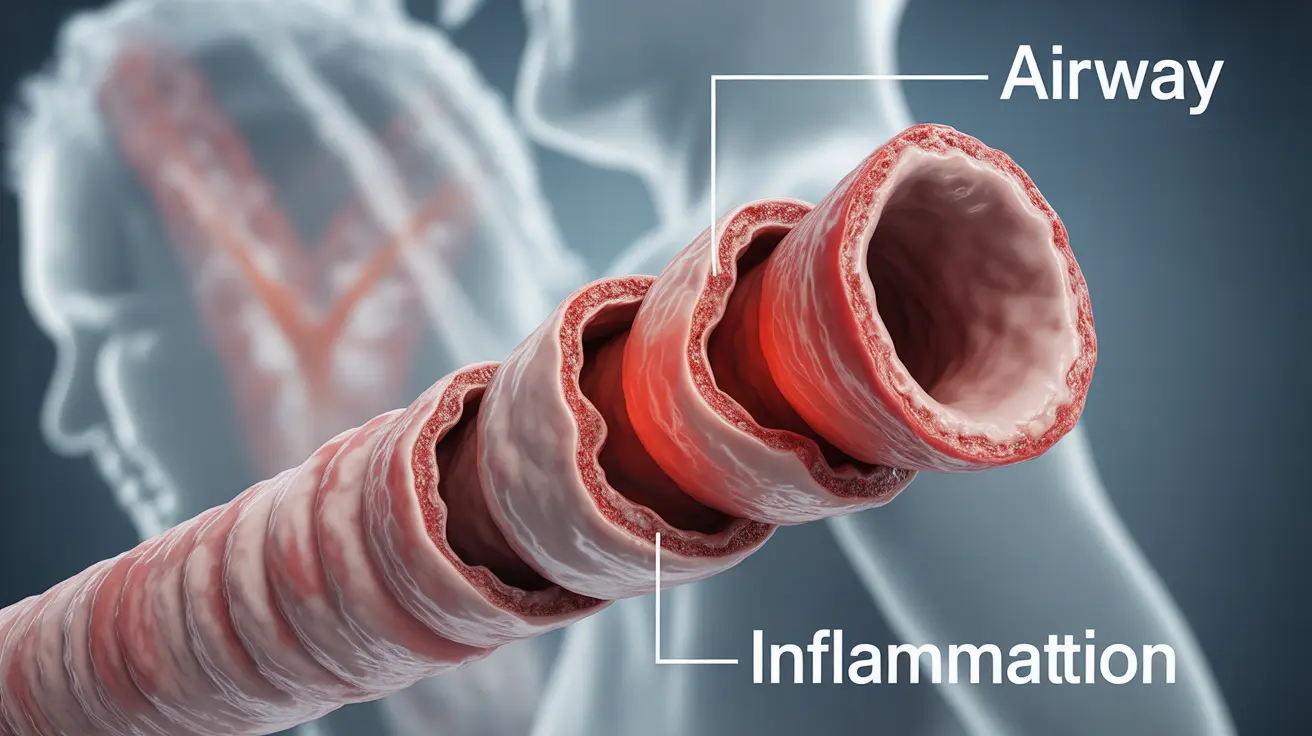Allergy-induced asthma, also known as allergic asthma, occurs when airway inflammation and breathing difficulties are triggered by specific allergens. This common form of asthma affects millions of Americans and requires a thorough understanding of both allergy and asthma management for effective control.
For those affected by this condition, recognizing the connection between allergic reactions and asthma symptoms is crucial for developing an effective treatment strategy. This guide will explore the key aspects of allergy-induced asthma, from identification to management.
Understanding Allergy-Induced Asthma
Allergy-induced asthma develops when your immune system overreacts to certain allergens, leading to inflammation in your airways. This inflammatory response causes the airways to narrow, making breathing difficult and triggering typical asthma symptoms.
Recognizing the Symptoms
The symptoms of allergy-induced asthma often occur shortly after exposure to specific allergens and may include:
- Wheezing and coughing
- Shortness of breath
- Chest tightness
- Rapid breathing
- Difficulty performing daily activities
- Increased mucus production
Diagnosis Process
Healthcare providers use various methods to diagnose allergy-induced asthma accurately. These typically include:
Physical Examination and Medical History
Your doctor will conduct a thorough physical exam and review your medical history, paying particular attention to the timing and pattern of your symptoms.
Diagnostic Tests
Several tests may be performed to confirm the diagnosis:
- Spirometry to measure lung function
- Allergy skin tests
- Blood tests for specific allergies
- Peak flow measurements
- Bronchial challenge tests
Treatment Approaches
Managing allergy-induced asthma typically requires a two-pronged approach targeting both allergy and asthma symptoms:
Medications
Common treatments include:
- Inhaled corticosteroids
- Long-acting beta-agonists
- Leukotriene modifiers
- Quick-relief inhalers
- Antihistamines for allergy symptoms
Immunotherapy
Allergy shots or sublingual immunotherapy may be recommended for long-term management, particularly for patients with severe or persistent symptoms.
Prevention and Trigger Management
Effective management of allergy-induced asthma includes identifying and avoiding triggers:
- Using air purifiers
- Regular house cleaning
- Maintaining optimal humidity levels
- Removing carpets or rugs that collect allergens
- Using allergen-proof bedding covers
Frequently Asked Questions
What are the common symptoms of allergy induced asthma and how can I recognize them?
Common symptoms include wheezing, coughing, shortness of breath, and chest tightness that typically occur after exposure to specific allergens. These symptoms may be accompanied by typical allergy signs like sneezing, runny nose, and itchy eyes.
How is allergy induced asthma diagnosed and what tests are used?
Diagnosis involves physical examination, medical history review, spirometry tests, allergy skin testing, and blood tests. Doctors may also use peak flow measurements and bronchial challenge tests to confirm the diagnosis.
What treatments are available for managing allergy induced asthma effectively?
Treatment options include inhaled corticosteroids, long-acting beta-agonists, leukotriene modifiers, quick-relief inhalers, and antihistamines. The treatment plan is typically customized based on symptom severity and trigger patterns.
How do allergy shots (immunotherapy) work for allergy induced asthma and who should consider them?
Allergy shots work by gradually exposing the immune system to increasing amounts of specific allergens, helping build tolerance over time. They're particularly beneficial for patients with severe symptoms or those whose symptoms aren't well-controlled with standard medications.
What are the main allergens and environmental triggers that worsen allergy induced asthma symptoms?
Common triggers include pollen, dust mites, pet dander, mold spores, and cockroach droppings. Environmental factors like cold air, smoke, strong odors, and air pollution can also worsen symptoms.
Understanding and managing allergy-induced asthma requires ongoing attention to both allergy and asthma symptoms. Working closely with healthcare providers to develop and adjust treatment plans can help achieve optimal control and improve quality of life.




